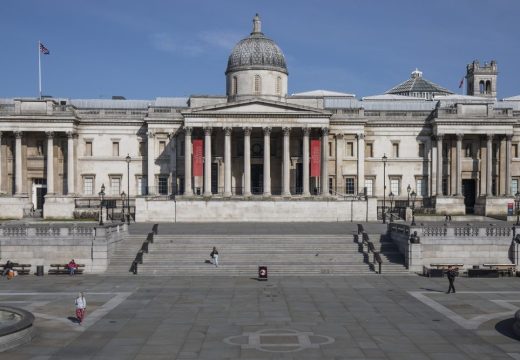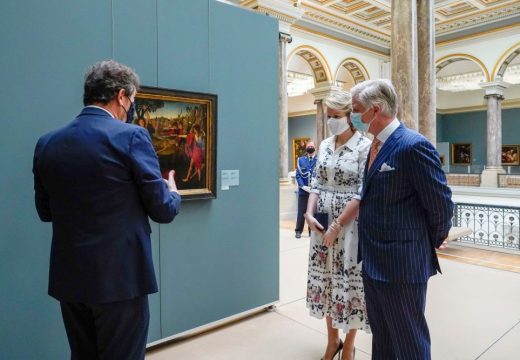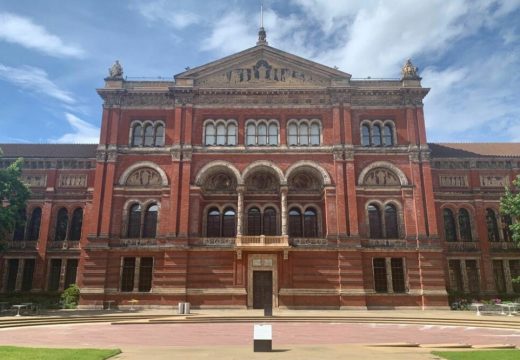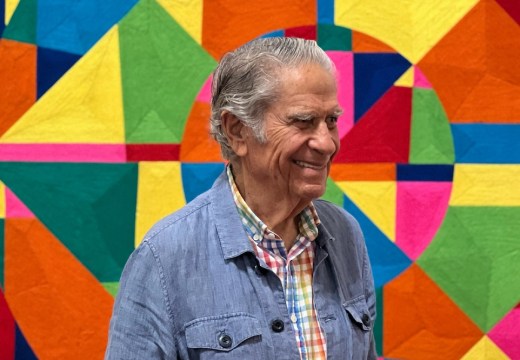With vaccination programmes underway and cases falling throughout Europe, many are cautiously hoping that some end to the pandemic is in sight. For museums, optimism may be tempered by memories of last summer’s short-lived freedoms, before the second wave forced them to shutter again. After the first lockdown, Swiss museums started reopening in May, and were among the first in Europe to do so. On 27 January, they appealed to have the same chance again, in an open letter to the Federal Council. Issued by a number of Basel museums and several Swiss museum associations, it argues for the democratic importance of museums and may have inspired a similar petition, published the following week, addressing France’s minister of culture Roselyne Bachelot. Nearly 10,000 people have signed, including some 100 museum professionals from institutions across the country. The letter pleads ‘for an hour, for a day, for a week or for a month, let us partially open our doors’.
Tobia Bezzola, director of MASI Lugano and president of ICOM Switzerland, is keen to stress the positive effect museums have on our lives. ‘It’s already spring here. What are people going to do? Libraries, theatres, cinemas and music venues are closed. There is no cultural offering at all,’ he says. ‘Museums might be a way to break out of the dreary everyday existence that many of us are living now.’ According to Emma Lavigne, director of Palais de Tokyo in Paris, which launched the French petition, ‘art can represent an antidote to many symptoms of the current crisis’. Accordingly, museums could ‘spare the French population the heavy social and psychological consequences that a third lockdown might have entailed’.
Bezzola is bemused that museums are kept off limits when far less regulated spaces, such as public transport, some shops and services like tattooing and hairdressing, remain open. He suggests that politicians might have a limited experience of how museums function on a typical day. ‘Maybe their last museum experience was going to see Mona Lisa at the Louvre, or visiting some blockbuster exhibition where they queued and were in a crowd,’ he says. Alternatively, the concern may be that reopening cultural destinations will encourage travel, within regions or even internationally. MASI Lugano draws audiences from Italy, while Geneva and Basel are both border cities.

Photo: Ludovic Marin/AFP; image: Tom Lobo Brennan
Lavigne says museums are in solidarity with other venues, like restaurants and theatres, but that the fresh air from ventilation systems, constant movement of people, strict use of masks and lack of lengthy conversations make galleries comparatively safe spaces. When the Kunstmuseum Basel reopened in May 2020, its director Josef Helfenstein estimates, it received just 25 per cent of its typical footfall, peaking at around 60 per cent in August and September. ‘We were adapting the safety measures almost weekly,’ he says. ‘It was beautiful to see how relieved people were to be back. Not just young people but also high-risk groups.’
Not only is our present engagement with culture under threat, but our ability to enjoy it in the future. Most Swiss museums rely on a mixture of public and private funding, including ticket sales, to sustain their operating budgets. Bezzola also fears that, by failing to define and stick to a clear exit strategy, politicians aren’t taking into account that exhibition programmes are typically planned years in advance. ‘The risk is that we just give up and don’t plan anything special because we have to reschedule again and again,’ he says. In this scenario, museums that reopen might not present new exhibitions for years.
‘The situation is very tense, and the divide is growing between people who are very concerned and want to tighten restrictions and those putting pressure on governments to ease lockdown,’ says Bezzola. In France, tensions were exacerbated earlier this month when Louis Aliot, the far-right mayor of Perpignan, in the south-west of the country, opened the city’s museums in defiance of government orders. Aliot told reporters, ‘there is a virus that will be with us for a long time […] Let’s get used to it.’ A French court ordered the museums to close again on 15 February, prompting the mayor to tweet ‘culture is a fundamental need’. Lavigne calls the incident ‘a unilateral, political decision’. ‘Our goal is not to break the law or regulations against Covid but to be allowed to play our part in society,’ she says. ‘There is no link between our open letter and the mayor’s decision, and it seems unlikely that his move will have any influence on our message.’
The museum directors I speak to seem relieved to express their frustrations. Helfenstein says of most cultural institutions, ‘We are often understaffed so we don’t have many lobbying opportunities. Other industries have been much more vocal.’ It is unclear yet whether their attempts to put pressure on politicians will pay off. On 17 February, the Swiss government announced that it is planning to lift some restrictions after 1 March and museums should be among the venues that can open in the first instance. At the time of writing, this plan still has to be discussed by the country’s 26 cantons before the government takes its final decision. France’s government has indicated that it will maintain any measures necessary to avoid a third lockdown. For now, the wait continues.
Update (24/02/2021): the Swiss government has now confirmed that museums can reopen from 1 March
Lead image used under Free Art Licence 1.3.
Unlimited access from just $16 every 3 months
Subscribe to get unlimited and exclusive access to the top art stories, interviews and exhibition reviews.














![Masterpiece [Re]discovery 2022. Photo: Ben Fisher Photography, courtesy of Masterpiece London](http://www.apollo-magazine.com/wp-content/uploads/2022/07/MPL2022_4263.jpg)
It’s time for the government of London to return to its rightful home